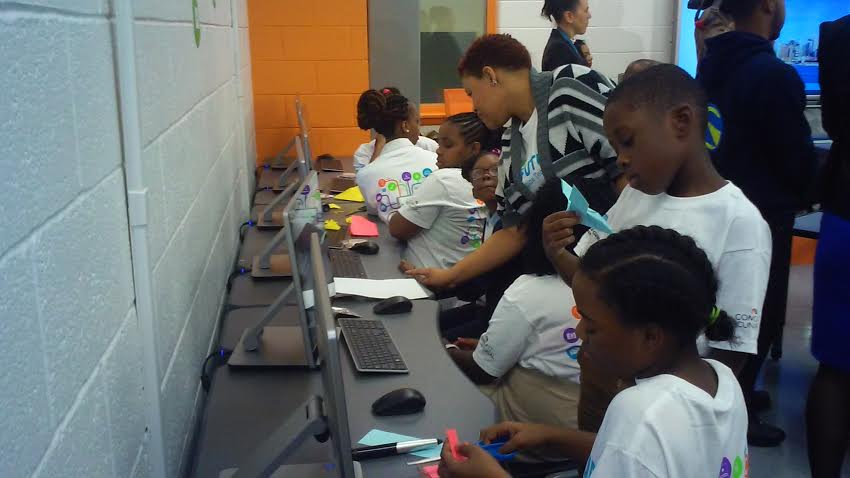In 2012, Clearly Innovative CEO Aaron Saunders decided to give back to the community by organizing a youth hackathon in Anacostia, in partnership with DiversiTech.
It was a success, but one that belied a much deeper failure.
“The kids were excited they built all these prototype applications,” said Saunders. “And then the event ended.”
He realized that occasional hackathons weren’t nearly enough to help educate D.C.’s disadvantaged youth in the STEM fields.
“One-day weekend workshops and hackathons don’t really address the issue,” he said. “You can’t have a hackathon if you don’t really know what you’re hacking.”
So he launched a tech education program at Howard University Middle School, giving courses there two days a week.
And with other members of his web development firm based on H Street, he expanded the curriculum to colleges, summer schools and middle schools.
The courses offer training, but also inspiration. Kids need “to have their instructors look like them, to be frank,” said Saunders. “To a lot of black kids growing up, Mark Zuckerberg doesn’t mean anything.”
In the beginning, the events were all paid for out of pocket. Eventually, the program grew into a business — one that Saunders now wants to expand.
“You can’t provide this service, this opportunity to the community on a volunteer basis,” he said. “There’s too much of a need.”
Now branded as Luma Lab, the STEM education programs are in the running for a $100,000 grant from JPMorgan Chase.
“We’ve developed a comprehensive curriculum ranging from ideation and design, to programming and formal pitch competitions,” said Clearly Innovative digital strategist Dominic Swain. “More support for our program means more access to a career in tech for all students.”
The organization wants more money to expand its services in Ward 7, Ward 8 and Prince George’s County — and buy much-needed equipment.
Luma Labs courses are sometimes limited by the lack of materials. The Boys & Girls Club on Benning Road, for instance, has no Apple computer, said Saunders.
“We teach them mobile development,” he said. But “you can only program on an iPhone if you have a Mac.”
Extending STEM education beyond the hackathons and beyond the Anacostia







